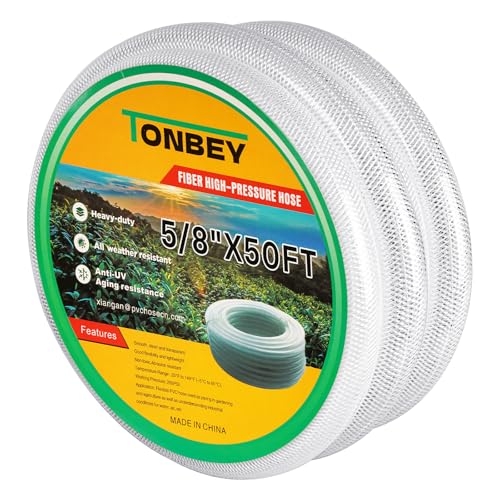

First, locate the model number on your unit. Typically, it can be found on the machine’s data plate, usually near the motor or on the rear or underside. This number often consists of alphanumeric characters, providing a specific identification for your device.
Next, if the label is unreadable or missing, check the user manual. Most manufacturers include model information alongside assembly instructions and specifications. If the manual is unavailable, visit the manufacturer’s website, where databases often allow you to search by features or product images to narrow down your options.
In case you still can’t identify your equipment, consider reaching out to customer support. Having details such as the year of purchase and any distinguishing features will facilitate the identification process. Meanwhile, joining user forums or communities can provide insights from fellow enthusiasts who may assist you with identification based on images or descriptions you share.
Identifying the model number on your Karcher equipment
The model number is typically found on the data plate, which is usually located on the rear or side of the unit. To locate this plate, inspect the machine closely, especially in areas that may not be immediately visible, such as beneath the handle or on the base. The number is often labelled with “Model” or “Type”.
Key locations for model identification
Check the following areas carefully:
- Back of the unit
- Under the handle
- Near the water inlet
- On the base or frame
Understanding the model number
The model designation typically consists of letters and numbers that indicate the series type and specifications. This can help in identifying compatible accessories or replacement parts. For example, a model labelled as “K2” generally represents a lower-powered unit designed for light cleaning tasks, while “K7” signifies a more robust option suitable for heavier duties.
| Model Series | Power Level | Typical Usage |
|---|---|---|
| K2 | Low | Light tasks, such as bicycles and garden furniture |
| K3 | Medium | General cleaning, including patios and vehicles |
| K5 | High | More demanding jobs like driveways and deck washing |
| K7 | Very High | Heavy-duty cleaning tasks, suitable for frequent use |
Identifying the model accurately is essential for maintaining your device and ensuring optimum performance. Make a note of the number for future reference, especially when seeking spare parts or service options.
Understanding the Differences Between Series
Recognizing the distinctions among various Karcher lines can significantly enhance your user experience. Each series has been tailored to cater to specific requirements, making it essential to choose the right one for your tasks.
K Series
The K Series focuses on versatility and power. These models typically come with a range of nozzle options, allowing users to tackle everything from gentle cleaning to heavy-duty tasks. Ideal for residential use, the K Series often has features like built-in detergent tanks and wheels for easy manoeuvrability. If your unit has a high pressure and includes adjustable nozzles, it likely belongs to this category.
HD Series
The HD Series is designed for professional and industrial applications, offering robust construction and higher pressure levels. These units usually feature durable components suitable for frequent use and challenging environments. If your machine includes a metal pump and a reinforced chassis, it’s probably from the HD line. Models in this series also often come with advanced features like automatic stop function for efficiency during prolonged tasks.
Checking the User Manual for Model Information
The user manual is a reliable resource for identifying specifics about your machine. First, locate the manual that came with your device, as it contains detailed information about the model’s specifications, features, and maintenance guidelines.
If the original manual is unavailable, consider visiting the manufacturer’s website. They often provide downloadable PDFs of user manuals for various models. Search using keywords that align with your equipment’s function or series, which can help pinpoint the right document.
What to Look For
Inside the manual, focus on the title page or the specifications section, where the model number is usually listed prominently. Additionally, the index or contents may guide you to troubleshooting or maintenance sections, often referencing the model number for clarity.
Additional Resources
If you’re unable to find the manual online, reaching out to customer support for assistance can be beneficial. They can guide you through locating relevant resources or provide information based on the serial number or additional characteristics of your equipment.
Finding the serial number and what it reveals
Locating the serial number is crucial for obtaining precise details about your device. Usually, it’s found on a label attached to the unit, often near the power cord or on the base. In some models, it may be hidden beneath a removable panel. Check the manual for specific locations related to your model.
What the serial number indicates
The serial number provides various information, including the production date, manufacturing location, and model specifications. By decoding the serial number, I can ascertain if certain components are under warranty or if they have been subjected to recalls. Additionally, this number assists in identifying compatible accessories and replacement parts.
Additional tips for verification
Once you’ve found the serial number, consider cross-referencing it with the official manufacturer’s database for confirmation. This step can clarify any uncertainties regarding specifications and available upgrades. Keeping a record of this number can also be helpful for future reference during maintenance or repairs.
Using Karcher’s Online Resources for Model Identification
Utilising Karcher’s official website streamlines the identification process significantly. Start by navigating to their support section, where you’ll find various resources tailored to assist in determining your device model. The following steps can optimise your experience:
- Model Finder Tool: Use the interactive model finder on the Karcher website. Input details such as your machine’s type and relevant specifications to receive tailored information.
- Product Registration: If you registered your appliance after purchase, access your account to view product details, including model and purchase date, which can aid in identifying the right model.
- Online Manuals: Explore available manuals online. Even if you no longer possess a physical manual, Karcher often provides downloadable PDFs containing model-specific information and specifications.
- Video Guides: Karcher’s YouTube channel features comprehensive video tutorials that may highlight model distinctions and functionalities, providing visual identification cues.
- Customer Support: If uncertainty remains, reach out via Karcher’s online customer support chat. Having your device on hand allows you to relay specifics for precise assistance.
Additional Tips

When using online resources, ensure you have basic information ready, such as any labels with serial numbers or product stickers that might already be documented. Engaging with community forums or discussion boards could also yield insights from other users who have tackled similar identification challenges.
By taking advantage of these online tools, I’m confident you will effectively identify your cleaning unit’s model, leading to better maintenance and using its full potential.
Recognising Distinctive Features of Your High-Pressure Cleaner

Start by examining the colour scheme of your device. Many models have specific colour combinations that can hint at their series. For instance, yellow is prevalent in more recent models, while older versions might exhibit a different palette.
Next, take note of the design elements. Check the shape of the casing, particularly the handle and wheels. Different series may offer unique ergonomic features, such as a more compact design or integrated storage solutions for accessories.
Pay attention to the nozzle styles and pressure settings. Some units feature a quick-connect system for nozzles, while others may use a twist system to adjust spray patterns. These mechanical differences can help narrow down the model.
Examine the Accessories
Identify the included accessories, as these vary significantly. For example, specific brushes, rotary nozzles, or detergent tanks can be indicative of the model. Additionally, the hose length and type may also reveal the series it belongs to.
Power Source and Performance Specs

Look at the power specifications, including wattage and psi. The performance ratings are often unique across different ranges. Higher pressure ratings, for instance, may signal a more advanced model intended for tougher cleaning tasks.
Lastly, take a closer look at the wheels and stability features. Models designed for heavier-duty work typically include larger, sturdier wheels for better manoeuvrability over rough terrain.
FAQ:
How can I identify the model of my Karcher pressure washer?
To identify the model of your Karcher pressure washer, you can start by looking for a model number that is usually located on the machine’s data plate. This plate is often found on the side or the back of the washer. The model number will be a combination of letters and numbers. Additionally, you can check the user manual if you have it, as it typically states the model details. If neither option works, you can visit the Karcher website and use their support section to look for model identification based on the features of your pressure washer.
Where can I find the serial number on my Karcher pressure washer?
The serial number is usually found near the model number on the data plate of the pressure washer. It may also be located inside the compartment where the motor is housed or on the base of the unit. It is important to note the serial number as it may be required for warranty claims or if you need to contact customer service for support. Make sure to check the entire exterior of the machine thoroughly, as the location can vary between models.
What features distinguish different Karcher pressure washer models?
Karcher pressure washers come with a variety of features that can help distinguish one model from another. These features may include the power rating (measured in watts), maximum pressure output (in bar or psi), water flow rate (litres per hour), and any extra attachments or accessories included in the package. Some models may have different cleaning settings or technologies, such as automatic pressure adjustment or detergent injection systems. By comparing these features with the specifications listed on Karcher’s website or in the manual, you can identify your specific model.
What should I do if I can’t determine the model of my Karcher pressure washer?
If you are unable to determine the model of your Karcher pressure washer, you can take several steps. First, try reaching out to Karcher customer service with any details you have, such as the machine’s appearance, features, and serial number. They may be able to assist you further. Additionally, consider joining online forums or social media groups where Karcher owners gather. Members of those communities often share insights and could help identify your model based on photos or descriptions. Lastly, if the model is crucial for repairs or parts, you might also consider taking the unit to a Karcher authorised service centre for assistance.






